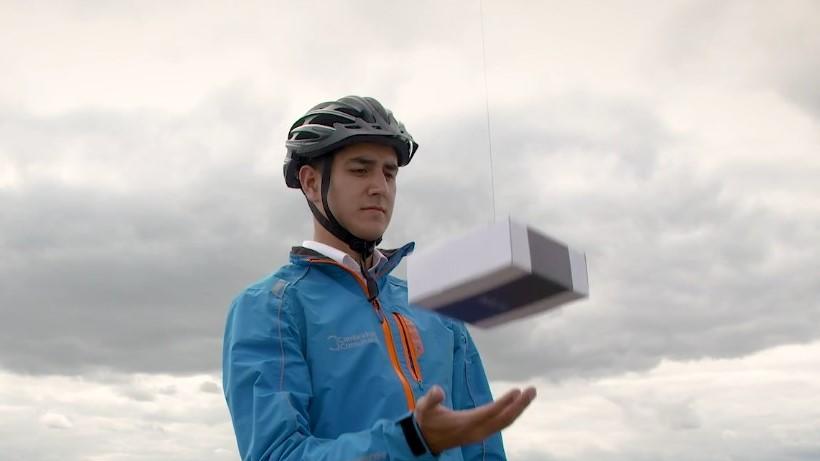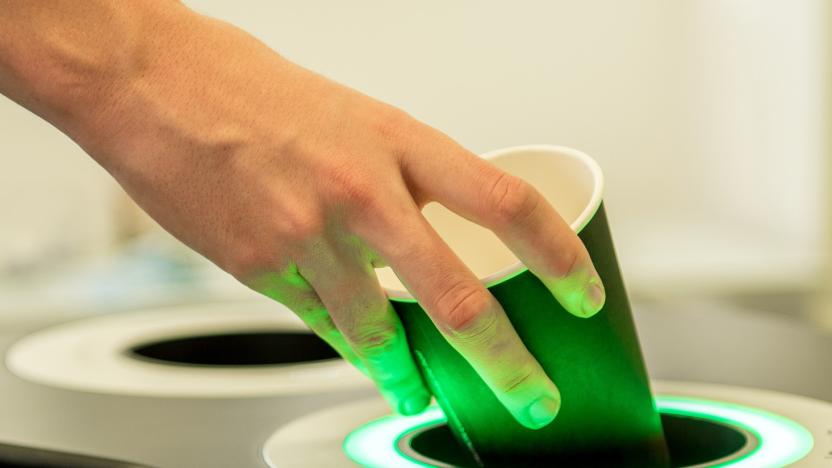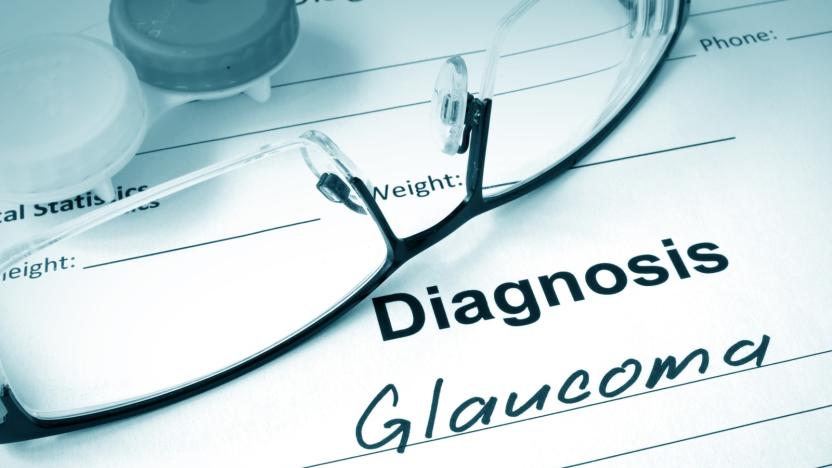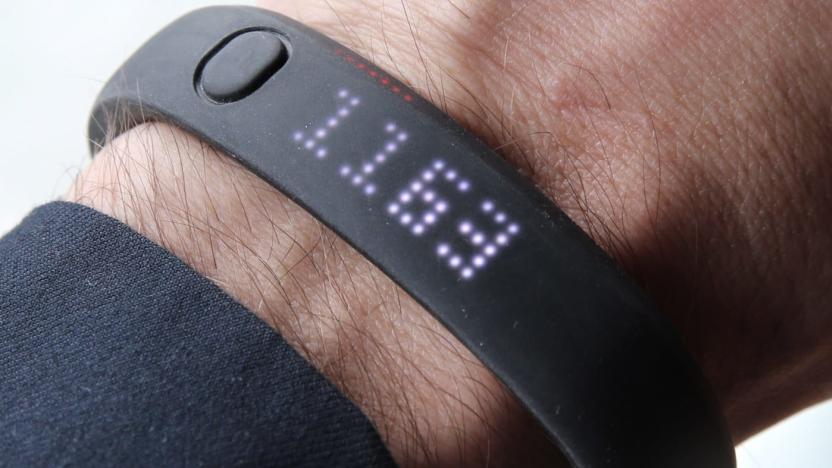CambridgeConsultants
Latest

DelivAir uses drones to deliver to people, not physical addresses
Drone deliveries -- the impatient consumer's Holy Grail -- have been in the pipeline for some time, and while Amazon is pioneering the cause, (although Rival 7-Eleven has completed nearly 100 aerial deliveries to date), its model is still somewhat encumbered by factors at odds with the advantages drone delivery technically offers. Recipients need to be present at an address, for example. Now, though, Cambridge Consultants -- the team that brought us intelligent bins and Renaissance doodling -- has developed a drone delivery system that'll get you your stuff anytime, anywhere, in a matter of minutes.

'Vincent' AI transforms your rough sketch into a Van Gogh
Prisma made AI art style transfer fun for the masses, but a new machine learning app has much bigger ambitions. Applying its vast knowledge of art from the Renaissance to today, "Vincent" can take your simple sketch and transform it a finished painting influenced by Van Gogh, Cézanne and Picasso. "We're exploring completely uncharted territory –- much of what makes Vincent tick was not known to the machine learning community just a year ago," said Cambridge Consultants Machine Learning Director Monty Barlow.

AI recycle bins could know what you’re throwing away
Is that coffee cup recyclable or compostable? It can be tough to tell, for sure, but a new recycling system from Cambridge Consultants aims to help using image recognition and machine learning. With low recycle rates in the US and UK, possibly due to consumer confusion over what's possible to recycle, this new retail-focused recycle point could help us all know what to recycle and what to trash. The company envisions a future where you'll even be rewarded via a phone app with points or a donation to charity when you recycle this way.

High-tech solutions top the list in the fight against eye disease
"The eyes are the window to the soul," the adage goes, but these days our eyes could be better compared to our ethernet connection to the world. According to a 2006 study conducted by the University of Pennsylvania, the human retina is capable of transmitting 10 million bits of information per second. But for as potent as our visual capabilities are, there's a whole lot that can go wrong with the human eye. Cataracts, glaucoma and age-related macular degeneration (AMD) are three of the leading causes of blindness the world over. Though we may not have robotic ocular prosthetics just yet, a number of recent ophthalmological advancements will help keep the blinds over those windows from being lowered.

An AI can recognize musical genres better than humans
Can you tell the difference between big band and boogie woogie? An algorithm can. Product design and development firm Cambridge Consultants says it's created a machine learning AI that can identify different musical styles better than humans. It's basically Jack Black in High Fidelity without the douchey elitism.

The tools you need to perform surgery are in this suitcase
In the US, laparoscopic surgeries are commonplace, since there are plenty of well-appointed hospitals packed to the ceilings with high-tech gear. In the developing world, things aren't so easy, and often surgeons are expected to buy and maintain their own equipment, which can cost up to $150,000. Cambridge Consultants thinks it can help, and has developed a portable laparoscopic surgery kit called Ekano.

Vinfusion wine robot blends a glass based on your taste
Take it from a former wine seller when I say that wine snobs are the worst, constantly trying to prove the the extent of their oenophilia. For everyone else, it's nothing but a wave of unnecessary intimidation thanks to the complexity and variety of wines and the potential risk of embarrassment. Cambridge Consultants feels that technology should be able to get us past that moment of panic that comes when you're asked to choose a wine. The company has created Vinfusion, a device that enables people to blend a glass of wine that's been customized to their specific requirements. Cheers!

Your smartphone could soon act as a glaucoma testing device
We've seen smartphones work as electrocardiograms, so why not use them to test for glaucoma at home? That's the idea behind Cambridge Consultants' Viewi headset. Rather than hitting the hospital or optometrist's to monitor your vision, you could simply slide your phone into a head-mounted Gear VR-like holster. From there, a mobile app reproduces the flashing light patterns used to test for open-angle glaucoma. A Bluetooth remote acts as the input device for patients to press when they see a flashing light and, really, that's about it, according to the press release.

Nike FuelBand designers bought by a consulting giant
Synapse, a key creator of the Nike+ FuelBand (among other gadgets), is moving on to greener pastures. Product development giant Cambridge Consultants has bought Synapse for an unspecified amount. As Cambridge's parent company Altran says, this is all about giving Cambridge a product development foothold in the American West -- it can design gear for partners ranging from the UK to Silicon Valley. It's part of a plan to double the size of Cambridge by 2020.

Your next smart shirt will make you look like an extra from 'Tron'
Cambridge Consultants is a research and development company from, yup, Cambridge in the UK, that acts as a sort of DARPA for the private sector. That's why you're just as likely to see the outfit producing sensors for the oil and gas industry as it is knocking out madcap tea machines, robotic basketball coaches or automatic beer taps. After a lunchtime trip to the pub, two of the company's oil and gas engineers wondered if it'd be possible to leverage its sensors know-how into a piece of fitness clothing that could offer would-be athletes an unprecedented level of detail.

Drinking a pint from an espresso-inspired beer tap
I'm tired of walking into musty pubs and ordering pints that are bland, poured incorrectly, or twice the price of the nearest off-licence. If I weren't meeting friends, I'd be out the door faster than Road Runner. Of course, more than a few social drinkers share my apathy, so a surge of public houses are starting to change tack. They're embracing top-notch craft beers and employ bartenders that put genuine care into your order. You feel like they want your business, and what you're getting in return would be difficult to replicate at home.

Cambridge Consultants wants to make you a better basketball player through the power of technology (video)
I am a terrible basketball player. But, that should come as no surprise: I'm relatively short and a tech journalist by trade. Cambridge Consultants is confident it can improve my game, however. The company is working on a collection of technologies that can be used to analyze your performance in a particular sport and provide data, tips and coaching to help you fully realize your physical potential. For demonstration purposes, it brought a system it's calling ArcAid to CES. It starts with three cameras mounted behind a backboard. Two of them are used to watch the ball as it flies through the air, calculating speed, angle and arc; while a third watches to see if you actually sink the shot. If we had been using an actual basketball, the cameras would have even been able to track its spin, but to avoid damaging the booth behind them Cambridge Consultants went with a blue foam ball instead. I took a few tosses and, as you'll see in the video below, things did not go so well. With each attempt, a giant screen to the right would tell me if I needed to shoot harder, aim farther to the left or lower my arc. This is, of course, just a rudimentary implementation. The system can support other sensors, like accelerometers, or track movement across a larger field. So, for instance, it could tell you where on the court you're having the most success, and even help you identify if a particular angle of attack is throwing off your aim. Obviously, the system isn't limited to basketball. You could tackle tennis, baseball or even boxing with the right combination of software and sensors. Even with a couple of years of tutelage under the ArcAid system, I'll never make the NBA, but at least maybe I'll finally beat able to beat my little sister at a game of HORSE.

Cambridge Consultants develops indoor tech to pick up where GPS drops off
Indoor navigation isn't a new concept, but it often requires wireless signals or custom infrastructure, neither of which are entirely reliable. Cambridge Consultants has come up with an as-yet-unnamed technology that purports to solve the issue by utilizing low-power sensors along with a custom formula that don't require an existing framework. According to the Cambridge, UK-based company, all you need are its special Bayesian algorithm and run-of-the-mill smartphone components like accelerometers, gyroscopes and magnetometers to do the job. It has already built a concept chipset (seen above) that could be embedded in existing devices -- you can either map your location directly on it or send that info off to a remote system. The firm says the technology will be useful for firefighters and hospital workers, though we wouldn't complain if it's implemented in trade shows either. For more information on the tech, check the press release after the break.

DropTag tells phones when packages are bruised before they're opened (video)
Many of us have had the misfortune of receiving a package that has been roughhoused in transit, and we might not have even realized it until we burrowed through the cardboard and tape. Cambridge Consultants' upcoming DropTag might just serve as the insurance we need. The badge can detect a drop or other violent motion, like earlier sensors, but carries Bluetooth 4.0 to transmit data and alerts in real-time to a mobile app, whether it's on the courier's smartphone or a tablet at home. As one watch-grade battery could power the sensor for weeks, we could know whether the box took a tumble at the warehouse or at the door -- a help not just for customers wanting their items intact, but for companies that can avoid delivering already-broken goods. At less than $2 in raw costs, DropTags would be cheap enough to slap on many packages. We just need Cambridge to line up clients to make this a reality and, just possibly, prevent a few overly hasty couriers from long-bombing our orders.

Cambridge Consultants Tê, the tea-machine of the future taste test (video)
After water, tea is the world's favorite beverage, yet to the gadget-producing fraternity, it's cruelly ignored in favor of coffee machines. Thankfully, the folks at Cambridge Consultants are trying to remedy this with the Tê, a machine that promises to whip up a perfect brew in two minutes. Naturally, as your humble narrator is a milquetoast European correspondent, we were compelled to see if it could live up to its impressive claims. Grab a Chocolate HobNob and join us after the break.

Sprint radar imaging system peeps inside walls, floors to detect bombs, tell-tale hearts
Back in 2005, we reported on a little something called the Prism 200, which allowed its holder to essentially see what folks were doing on the other side of a wall. Since then, we've seen plenty of devices that boast the same claims, but it wasn't until recently that the makers of the Prism 200 created a device that can actually see inside those walls. Looking something akin to an old school punch clock, Cambridge Consultants' Sprint in-wall radar imaging system provides 3D renderings of items embedded in walls, floors, and even ceilings. Where as existing X-ray systems require access to both sides of a wall, Sprint's radar setup allows users to see what's going on inside without dual access. As you might imagine, Cambridge is pushing this thing as a security tool, allowing for detection of bombs, drugs, dead bodies -- you know, the usual bad guy stuff. Sprint is currently undergoing testing. Full PR after the break.

Futuristic water bottle uses technology, science to let you know you're thirsty
The future is a scary place, yes -- but one thing we don't need to fear is being unaware that we're thirsty. Research and development firm Cambridge Consultants will be showing off its intriguing "i-dration" concept fitness water bottle at CES in a few weeks, combining a series of sensors on the bottle itself that communicate with an app you've got installed on your smartphone. The bottle will measure ambient temperature, how much fluid you've pounded, and how often you've consumed it; the phone, meanwhile, will use its accelerometer to measure how hard you're working out and combine that with heart rate data from a chest strap. After crunching some numbers, the app determines whether you're low on H2O -- and if you are, it'll make a blue light on the bottle pulse. If it seems like a roundabout way to stay hydrated... well, that's because it is, but Cambridge's angle is that this is a demonstrator for cool new ways that sensors can be tightly packed and integrated with smartphones to create "hardware apps." Speaking of, we could use a tall, cool glass of water. Follow the break for the full press release.

Cambridge Consultants Suma sensor is designed to add '3D' input to traditional control schemes
They're short on details, but the folks at Cambridge Consultants might just be onto something with this new "Suma sensor system" of theirs. Basically it translates the deformation of its soft material into 3D data that can be used in a video game to "unleash the full capabilities of both the human hand and the user's imagination." Sounds a tad far fetched, but the exciting part is that this "Suma skin" control material can replace the traditional casing of a regular gaming controller for less than a buck in parts, meaning that with (relatively) little effort we could see tactile squeezing, gripping and other sorts of finger-friendly input worked into console gaming without having to bid farewell to the form factors we know and love. Cambridge Consultants doesn't mention robotics, but we could also see this sort of material being quite the cost-effective, sensor-laden skin replacement. Just as long as nobody tries to get us to control Ezio with that little stress-ball pictured above.

AirScript translator beams live theater subtitles over the air
If you ask us, one of the best things about London is its theater scene. Turns out, however, that not every person who appreciates good theatre speaks the Queen's English -- we know, it's shocking to us as well. To serve those unenlightened souls, a new AirScript wireless translation gadget is being trialed at the Shaftesbury in central Londonium. Designed by Show Translations and built by Cambridge Consultants, it combines a simple WiFi-enabled device with an LED-backlit screen and a dude in the background who feeds live subtitles over the air. The pleasure of said dude's services will be a steep £6 ($10), which you might scoff at now, but imagine yourself attending a show in Tokyo or Beijing and suddenly the price becomes a lot more justifiable. Eight languages are available so far (American English is presumably still in the works), with translations done by professionals rather than machines, and all that remains now is to see whether this multilingual birdie flies or flounders.

Vena-enabled asthma inhaler adds IR and Bluetooth connectivity, won't sync with your headset
Putting a new twist on inhalers, Cambridge Consultants this week announced a new Vena platform for medical apparatuses. It's comprised of two wireless standards, Bluetooth Health Device Profile (HDP) and the IR-based IEEE11073, for exchanging data with between devices. The Vena respirator marks the first demo unit and will connect via smartphone or computer to help keep track of when it's being used and can provide reminders for patients who need to scheduled doses. The information can also be sent to relevant doctors and anonymously to health care specialists who like to mine these numbers and find trends. If you're looking to see it for yourself and maybe try to smooze your way into a lungs-on, it'll be at the Respiratory Drug Delivery Europe 2009 conference in Lisbon, Germany later this month. [Via CNET]












